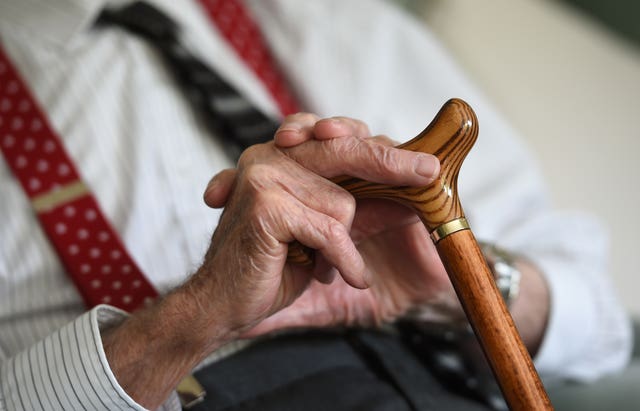
Iain Dale 7pm - 10pm
29 May 2024, 09:24

It will raise the alarm if a vulnerable person living on their own does not follow their usual routine.
Artificial intelligence (AI) linked to household devices such as kettles and electric showers is being used to alert family or neighbours if an elderly or vulnerable person does not follow their normal routine.
A device currently being trialled is linked wirelessly to a smart meter or conventional electric meter in the home and monitors the use of high-power electrical items such as microwaves and washing machines.
Using machine learning, it can determine what time such household appliances are normally used and spot any anomalies which might suggest the person living there alone may need medical help.
If the person usually boils the kettle to make tea by 8am for example, the monitoring device will identify this as normal behaviour, however if it has not been turned on by 9am, the householder will receive an automated text message.
If there is no response to the text, an alert will be sent to the person’s nominated contacts – a family member, carer, neighbour, or a response service – who will come to check on them.
The AI-powered and Internet of Things (IoT)-enabled device has been developed by a consortium of partners and is being trialled as part of the Blackwood Homes Peoplehood project across 19 households in Glasgow, Dundee and Buckie in Moray.
Stephen Milne, director of strategic projects at Censis, one of the partners, said: “This project is all about repurposing energy data to help inform social care and supporting healthy ageing.
“The system learns the typical activity of the individual living in the household and then spots any erratic behaviour, helping to identify when they may have issues.
“These could be one-off events, like a fall, and with further research the system may be able to track changes over a longer time period that may indicate gradual, and more difficult to spot, health issues, such as the onset of a condition such as dementia.
“While there are other technologies related to monitoring activity, this is the first full service deployment that has been implemented through passively monitoring a property’s smart meter system. The device can also pick out each item being monitored, making it much more likely to spot any anomalies, and is barely noticeable for the householder.
“After these trials, we are looking to develop the technology to the commercial product stage and deploy it at a much bigger scale, and are open to taking this forward with talks with potential long-term partners.”

Censis – Scotland’s innovation centre for sensing, imaging, and IoT technologies – the University of Edinburgh, Mydex CIC, Carebuilder and Blackwood Homes and Care are involved in the project.
The device uses a hub process algorithm, which means all the data can be processed at the property, rather than at a central point.
Service user Evie was helped by the device after she fell unconscious at her home in Buckie in November last year.
The pensioner, who is in her 80s and lives alone, passed out on her bed after going to lie down when she started to feel unwell while reading in her sitting room.
Because she did not make anything at dinner time, the initial SMS alert was generated and, since she was unconscious and unable to respond to the message, an automatic interactive voice recording phone call was sent to her nominated responder.
She regained consciousness with her responder – a neighbour with access to a door key – beside her calling an ambulance.
After a trip to hospital for a check-up, Evie was told she had suffered an angina attack but she has since made a full recovery.
Evie said that if it had not been for the device alerting her responder, “I could have been there all night” and “it would probably have been much worse”.